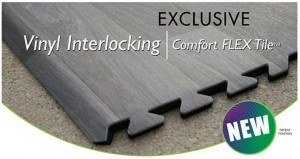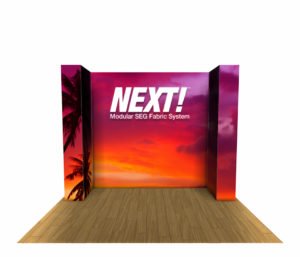Know Your Customers or It Can Kill You!
We all want a crowded trade show booth, filled with prospects ready to do business with us. But you may be creating obstacles to accomplishing that goal that are actually keeping people away from your exhibit. Why? Because you don’t know your customers well enough, and haven’t given them a reason why they’d want to enter your booth.
So let’s look at some of the things you may not know about your customers. Then we’ll investigate how you can obtain that information. Finally, we’ll discuss how you can use that information to your benefit to make your trade show exhibit more successful.
Ten Things You Need to Discover to Know Your Customers:
1) Who They Are:
If you sell to the public, you need to know things like your ideal customer’s gender, age and occupation.
When selling to businesses, you need similar information.
You need to create a profile of your ideal customer.
What kind of business are they? How big are they? Are they privately held or a big multinational?
2) What They Do:
If your customers are individuals, knowing what they do for a living or what interests they have can be very beneficial.
For B2B customers, you should, at the very least, have a clear understanding of what that ideal customer’s business is trying to achieve.
3) Why They Buy:
If you don’t know this, how can you craft your sales message? Many exhibitors talk all about themselves and their product or service.
What you really need to do is to focus on what your product or service can do for your customer.
4) When They Buy:
Trade shows are usually great times for individuals and businesses to buy. Otherwise, why would they be there?
Of course, a company’s buying cycle doesn’t always coincide with the trade show’s schedule, so you may find that your ideal customer usually buys sometime before or after the show. However, if you know where they are in their purchase cycle, you can give them the appropriate information.
If you know your customers, you’ve got a much better chance of approaching them when the time is right.
5) How They Buy:
If your ideal customer has always bought products like yours from a website, you’re unlikely to make face-to-face sales.
It’s easy to compare pricing, shipping costs and timeframes online.
But even those customers that frequently shop online appreciate an opportunity to check out the product before they buy, or the chance to meet and ask technical questions.
Get to know your customers and find out how they want to shop. Your business should be prepared to assist both types of buyers.
6) How Much They Have To Spend:
Without knowing what your ideal customer’s budget is, you won’t be successful matching your offering to what your customer can afford.
Or you may be way off the mark of what your customer is accustomed to paying for whatever it is your provide.
7) How They Want To Feel When They Buy:
Most customers are looking for a product or service that solves a problem they have, or anticipate having.
Solve that problem and you make them happy.
If you know your customers and how your ideal customer “ticks,” you can craft your offer to create that feeling of satisfaction, having avoided a problem, or getting exactly what they wanted.
8) What They’re Looking For From You:
Most customers want honest dealing, fair pricing, reasonably fast delivery and good service.
If you can provide all these better than your competition, you’ll get more business.
You’ll also have repeat customers as long as you don’t disappoint them.
9) What They Think They Know About You:
True or not, what they think they know about you will color their decision to do business with you.
If there’s been negative press about your company, problems with your product or service or other bad news, you’ve got to deal with it head-on to win back their trust.
On the other hand, if your customers enjoy their interactions with you, they’ll buy more readily and probably buy more of whatever you’re selling.
Also, they’re more likely to tell you about problems so you can fix them before that negative press gets started.
10) What They Think They Know About Your Competition:
Again, true or not, what your prospects think they know will guide their business decisions.

Comfort flex interlocking vinyl trade show tiles – light weight, easy to use, comfortable, and GREAT looking!
If you do something better than your competitors, be prepared to prove it.
If you know of a weakness in your competitor or their product, use that to your advantage.
How Do You Find This Information?
Much of it is readily available from business profiling services like Hoovers and others.
But if you really want to know your customers, and the ins and outs of their business, you need to ask. You can learn an enormous amount about your ideal customer this way.
Asking current customers why they buy from you will generate information you wouldn’t get anywhere else. Also, when a prospect doesn’t buy, it’s worthwhile to ask why you didn’t get the sale.
You may discover something about your internal processes (complicated billing, missed shipping dates, etc.) that could be fixed.
You could also learn something about a competitor that you can overcome through strategizing.
Perhaps your competition offers free shipping, lease-to-own, a broader selection, or some other factor that appeals to customers.
If you discover the reason customers choose them over you, you can rethink your business model to meet or beat that challenge.
How Can You Use This Information?
We’ve already touched on some of the reasons taking the time to know your customers and prospective customers can help you.
Sales are made by focusing on the benefits your product or service provides customers. Simply put, if you know the challenges they face, you can craft your marketing message, product demo script and selling points to demonstrate how you can solve their problems.
It’s also a good idea to keep abreast of future developments in the lives of your customers, and in the markets where they do business. If you’re aware of trends in the marketplace that will have an effect on your customers, you can stay ahead of the curve and anticipate what your customers will need from you in order to meet those future challenges. You can also be in a position to offer a solution before your competition gets up to speed.
Here at American Image Displays, we know what our customers need: an effective exhibit that tells their story in a compelling way and welcomes prospects into their booth.
In addition, the best trade show booths need to be easy to set up and use, and light weight for reduced shipping and drayage costs. If you add durability, and cover it with a life time warranty, you’ve described the majority of our product offerings!
Representing every major manufacturer of portable and modular exhibits, we can offer you the best selection, timely delivery and affordable pricing on everything you need to make the best impression on the trade show floor.
If that’s what you’re looking for, give us a call at (800) 676-3976 or email [email protected].
For more, check out the power of trade show giveaways or how to understand your customer before you lose them.


